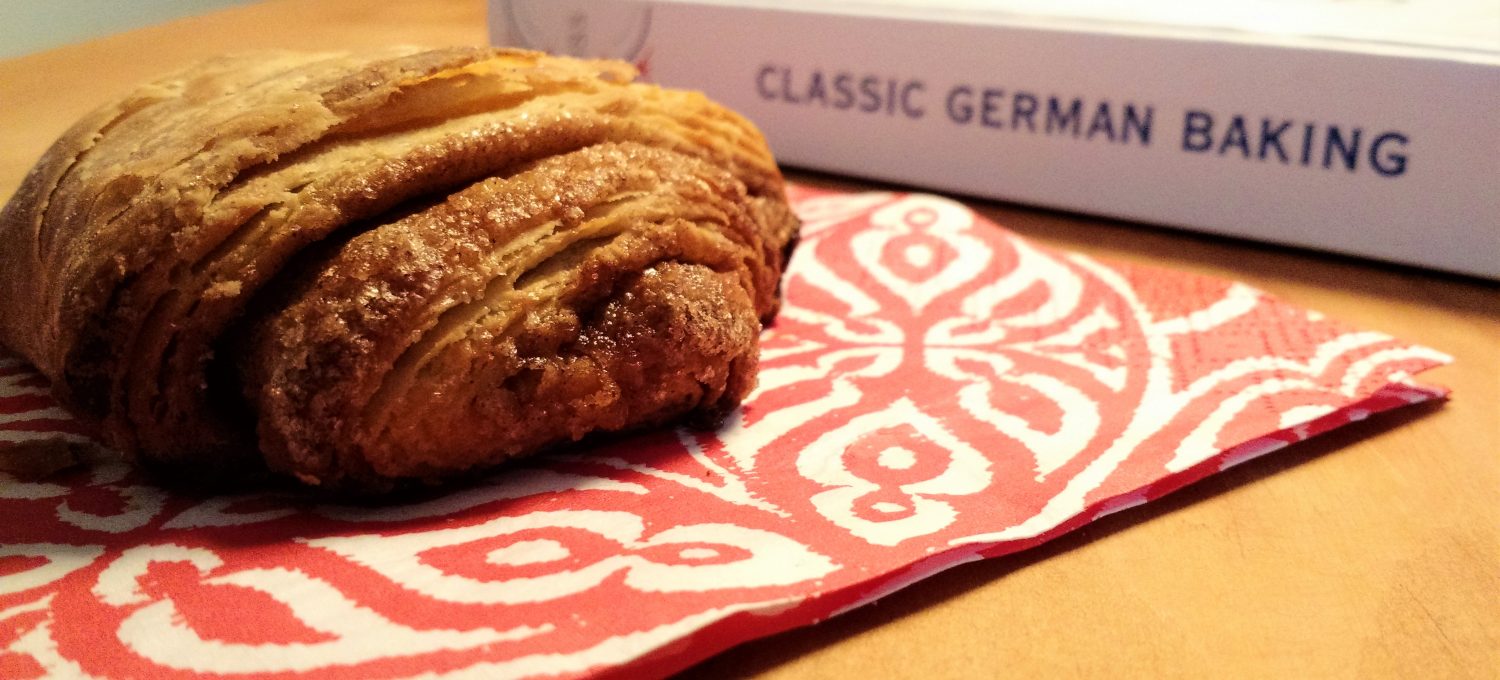Luisa Weiss, author of The Wednesday Chef and My Berlin Kitchen, released a new book this week. Classic German Baking is the best English-language authority on German baking I’ve come across, and it’s the most wonderful Christmas gift idea for your Teutophilic friends.
Despite being fluent in German, I’ve never been a fan of German recipe books. I don’t want to spend ages figuring phrases out while my hands are covered in dough, and mentally translating lists of ingredients was always too much of a faff. Nonetheless, I am a fan of German baked goods (who isn’t?) and sometimes made the effort to pore over Plötzblog to bake bread rolls, or study Schuhbeck to make a traditional Strudel.
Thanks to Luisa Weiss, my baking life has been made easier and more enjoyable. Her book is comprehensive – you name a German baked good, she’s got a recipe for it. From Bienenstich to Lebkuchen, from savory onion cake to sweet quark rolls, the book contains everything you need to bake like Oma.
And to those Germans who scoffed when they saw a book on German baking had been written by a half-American, half-Italian – she’s not your obvious choice to write recipes on the subject, but Luisa knows her stuff. Also a fan of Plötzblog, Weiss pays homage with an adapted breakfast bread roll recipe. She offers tips on dipping pretzels in lye solution and she knows how to make a perfect laminated dough to get you those flaky, buttery Franzbrötchen. She’s an accomplished, experienced baker who tried and tested recipes with German baker Maja Welker, and who honours tradition. There is no better non-German to write this book.
It was the Franzbrötchen that won me over (and that full-page photo of freshly baked, perfectly formed puff pastry slices). I spent most of the day baking them on a damp and rainy Tuesday – opting for fresh yeast over dried, as advised by Luisa, laminating my dough with care, setting the stopwatch to make sure it cooled enough between folds. I’ve not had great experiences with Franzbrötchen in my life. The ones I’ve tried have been stale, dry and industrial – all apart from those in Kitchen2Soul in Neuhausen, Munich, where they’re baked freshly every day.
While not all of my Franzbrötchen turned out to be as flaky as I’d hoped, the majority were delicious. Luisa’s recipe was simple to follow,
If I have any criticisms of the book, it would be that there aren’t enough photographs to appease my hungry eyes. The photos included are beautiful, but there are some biscuits that I don’t know, and I’d have to Google to find out what they’re supposed to look like. But the book simply doesn’t have space for more photos – I’m wanting the impossible. It’s already jam-packed with recipes, tips and gorgeous imagery, and I’ve already bought the book for several Christmas gifts.
Buy Classic German Baking online now.
I was kindly sent a copy of the book to review by Penguin Random House.


0 comments on “Classic German Baking”